Diasporic Africa in Dialogue
CSAAD implemented two new rubrics within which to place all of its virtual programming: African Worlds in Conversation and Diasporic Africa in Dialogue
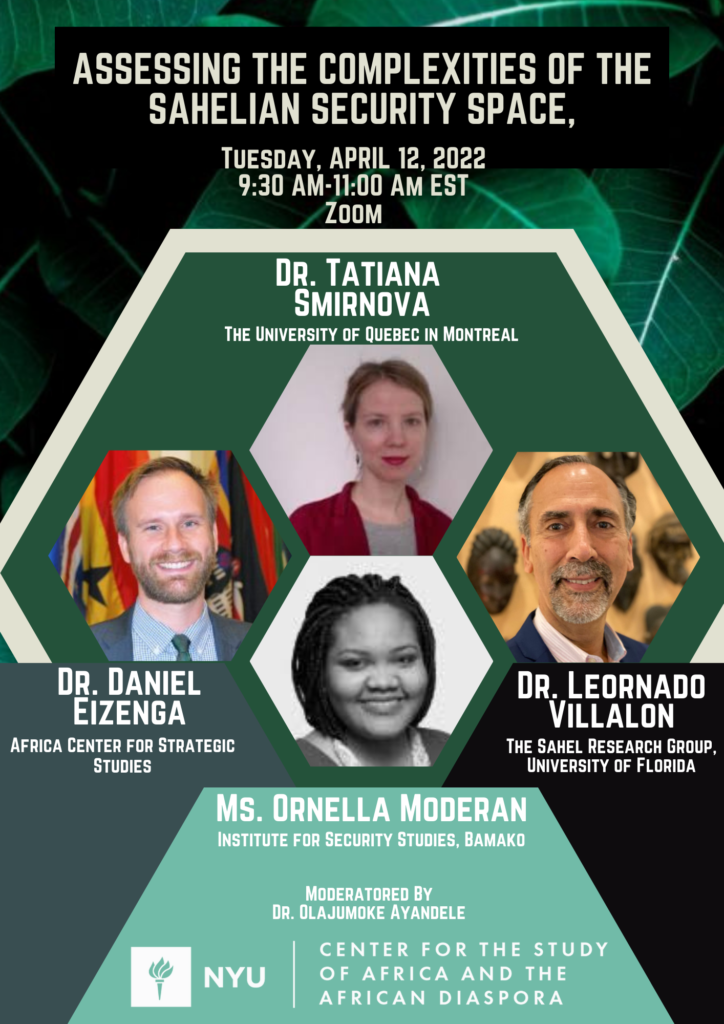
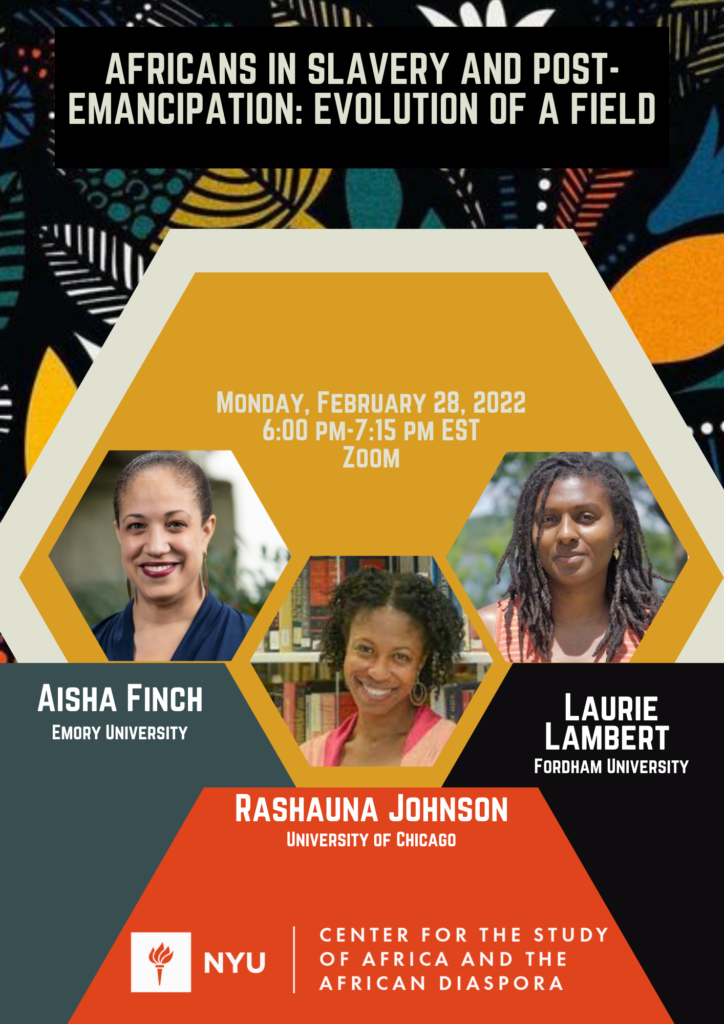
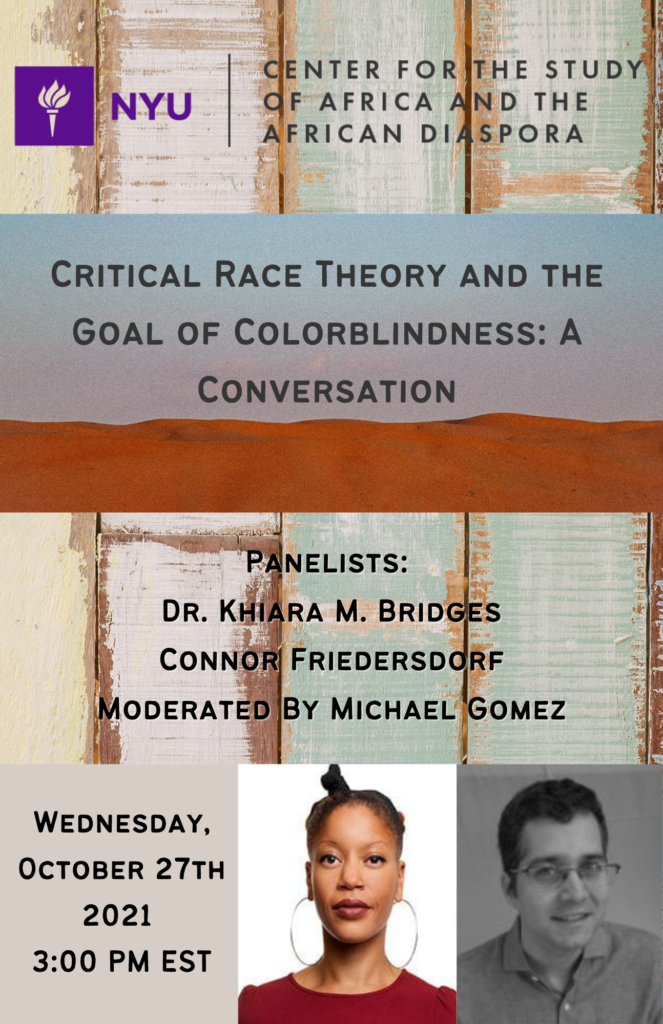

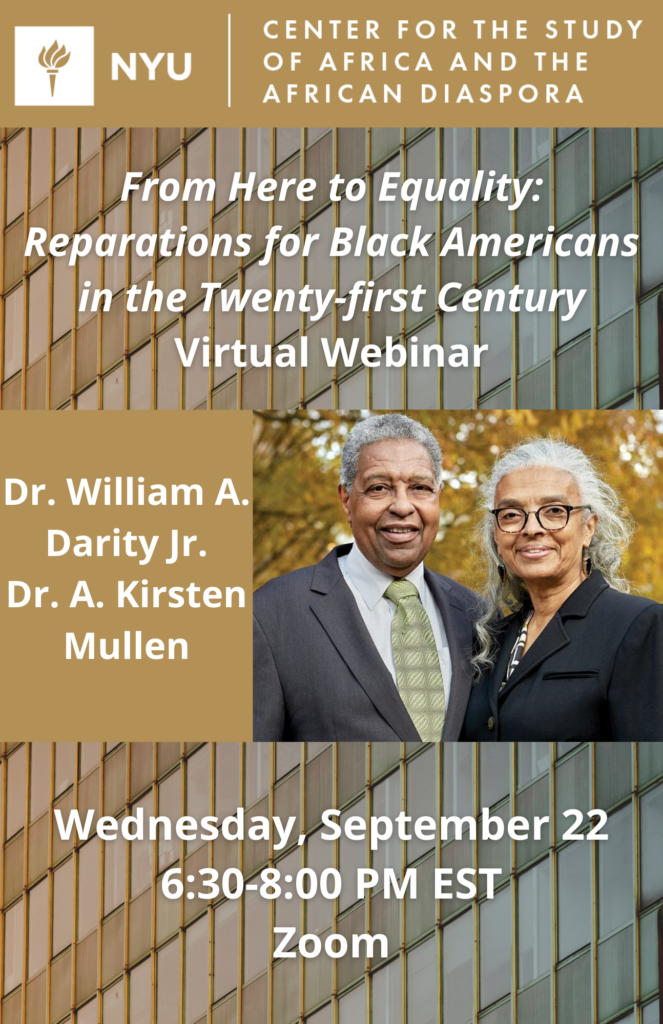
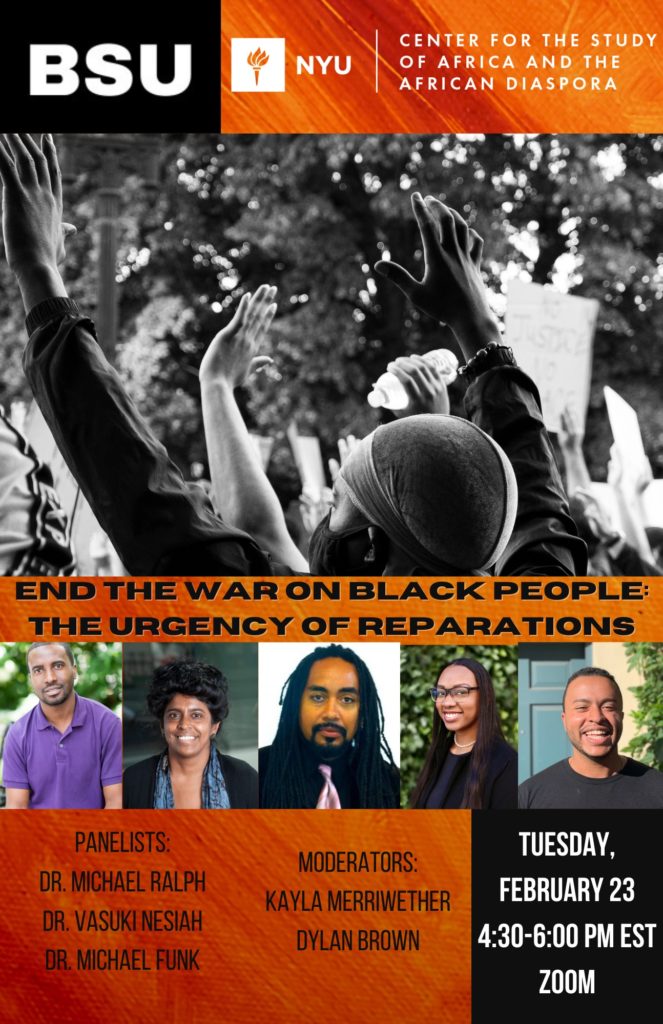
On February 23, 2021, Diasporic Africa in Dialogue – End the War on Black People: The Urgency of Reparations was co-hosted with NYU’s Black Student Union, featuring panelists Dr. Michael Ralph, Dr. Vasuki Nesiah., and Dr. Michael Funk, and moderated by undergraduate students Kayla Merriwether and Dylan Brown. Defining reparations as a strategy for managing injury, a way of healing breaching, and as an unwritten agreement in the way we relate to each other, the panelists also noted that reparations constitute an essential issue when there has been some injury. This an argument to carry our history with us, rather than bringing closure to the past. They also discussed the connections among between global awakenings to police violence and reparations throughout the Diaspora. Finally, panelists posed the question of who qualifies for reparations? They called for the centralization of historical experiences and other injustices –such as colonialism—within discussions of reparations.
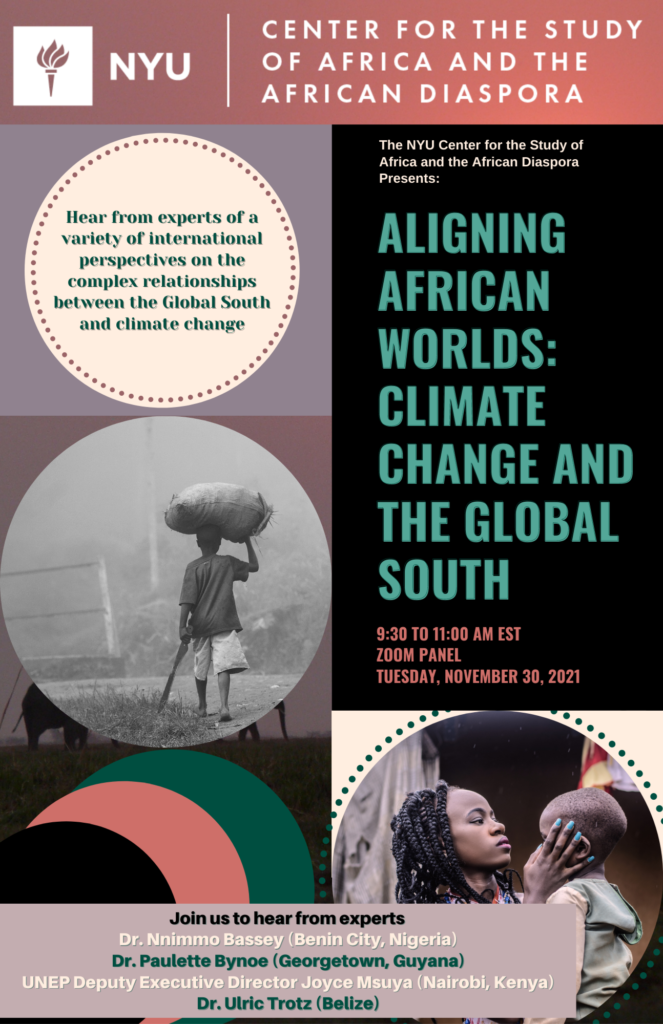
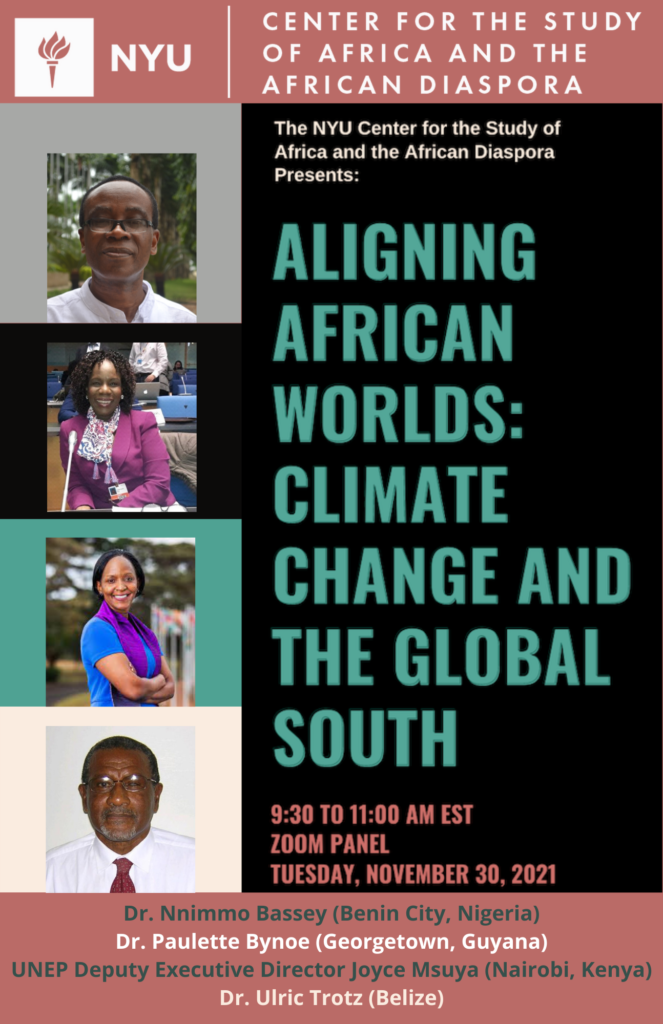
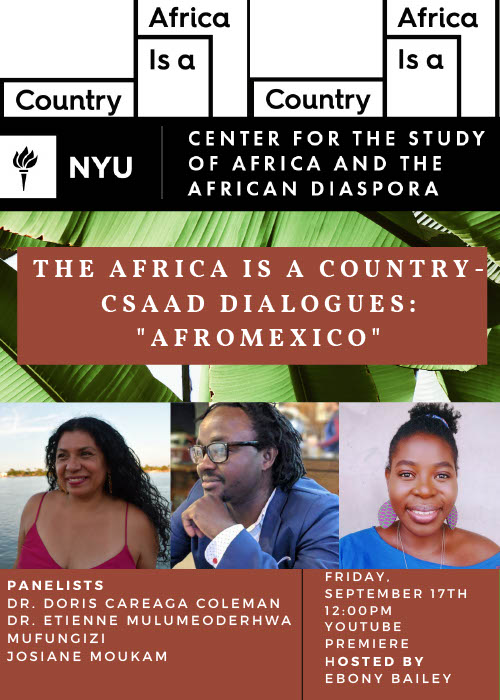
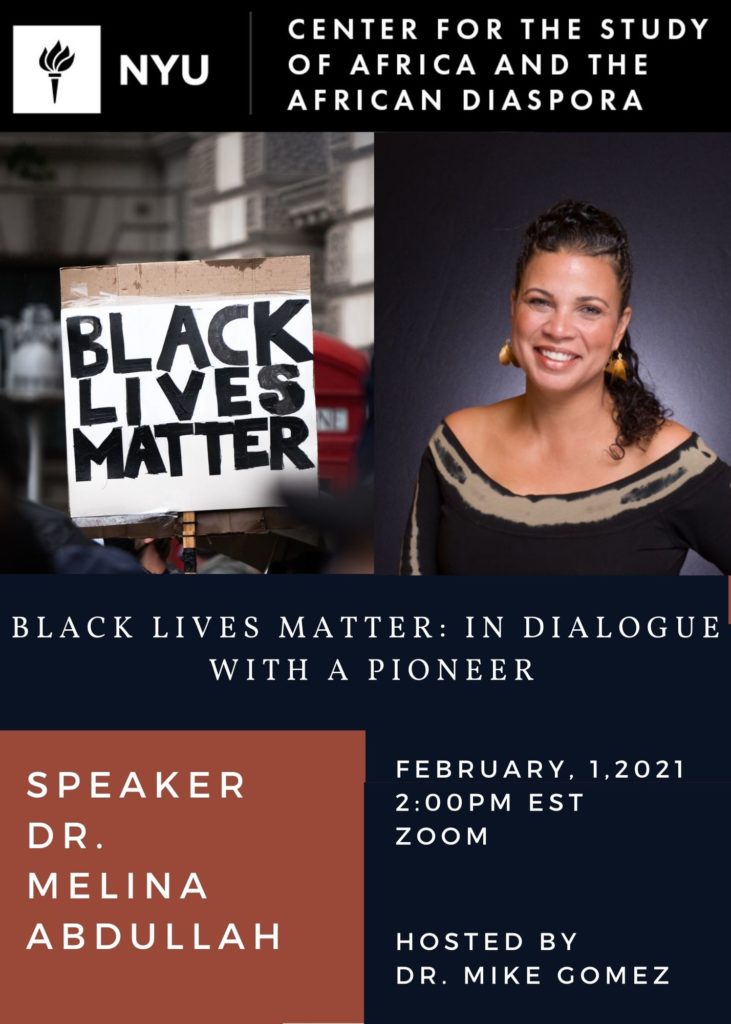
Diasporic Africa in Dialogue: Black Lives Matter: In Dialogue with a Pioneer, featured Dr. Melina Abdullah in conversation with Dr. Gomez, a session that took place February 1, 2021. Dr. Abdullah discussed how being born in Oakland, California and developing close ties to Black Panthers ignited her interest in activism. She discussed how she joined the Black Lives Matter Movement, and some of the backlash she has experienced because of it. Dr. Abdullah detailed the founding of the Black Lives Matter Movement, how it grew into a global movement, and the role of black mothers as organizers and intellectuals, highlighting black radical organizers’ influence on current politics, black liberation, black freedom struggles, and the importance of allied groups.
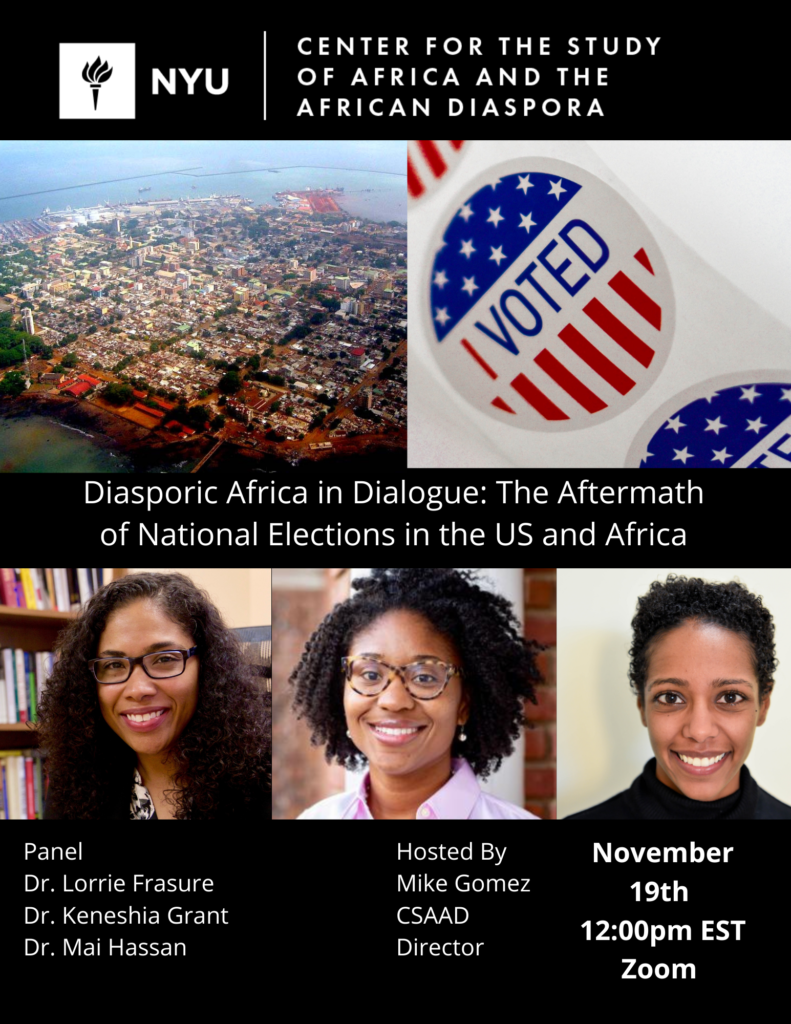
On November 19, 2020, Diasporic Africa in Dialogue: The Aftermath of the National Elections in the US and Africa hosted a discussion with Dr. Lorrie Frasure, Dr. Keneshia Grant, and Dr. Mai Hassan, who examined what happened in the past election via statistics about election results. The panelists emphasized that election results revealed the diversity in Black communities and the difference between voting for policing versus voting out of a sense of collective identity. They also pondered the expectations of the Biden and Harris administration for people of African descent, and what types of policies will be beneficial for the Black community. Finally, they speculated on how the US elections will impact elections and relations in Africa, and questioned the state of democracy in such African countries as Ghana and Burkina Faso.
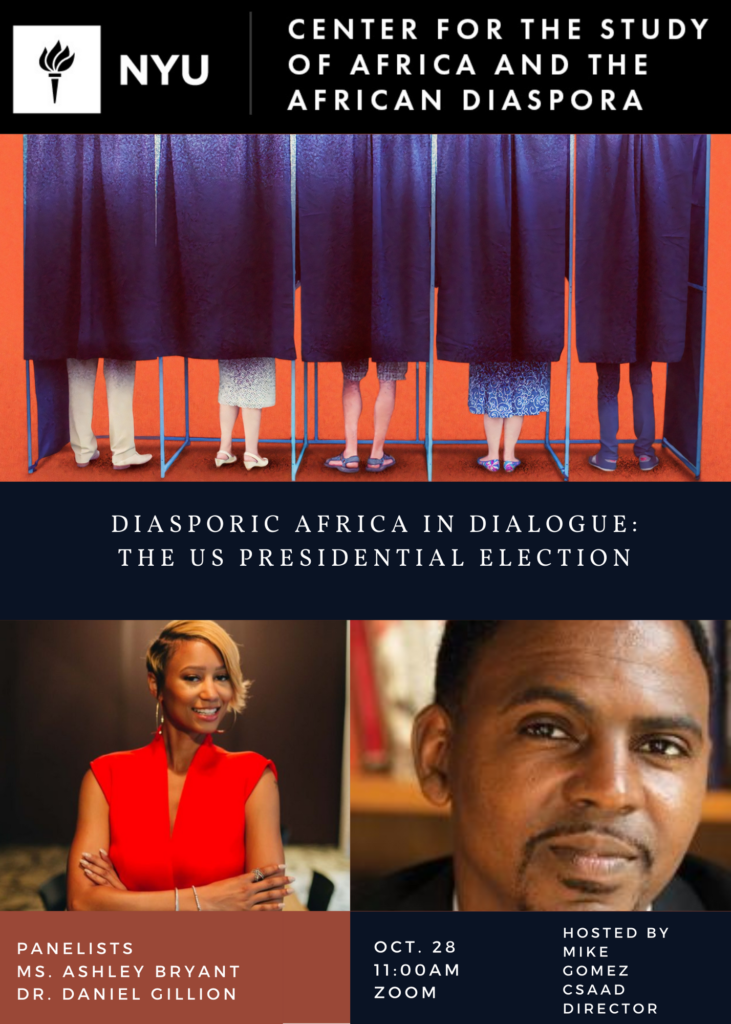
On October 28, 2020, the series Diasporic Africa in Dialogue: The US Presidential Election featured a conversation with Ms. Ashley Bryant and Dr. Daniel Gillion, six days out of the 2020 US presidential election. The panelists discussed preparing for a contested election and Black voter suppression. During the event, Mr. Ashley Bryant introduced her organization “Win Black – Pa’lante,” and its focus on campaigning and winning Black and Brown voters. They provided a Black perspective on the US election and Republican vs. Democratic participation. They also commented on the “Defund the police” movement and addressed disinformation and misinformation campaigns on social media. They then examined how protest influences politician and the implementation of certain policies—especially for the Black community. Finally, they predicted the election results, and how the global pandemic would impact the election.
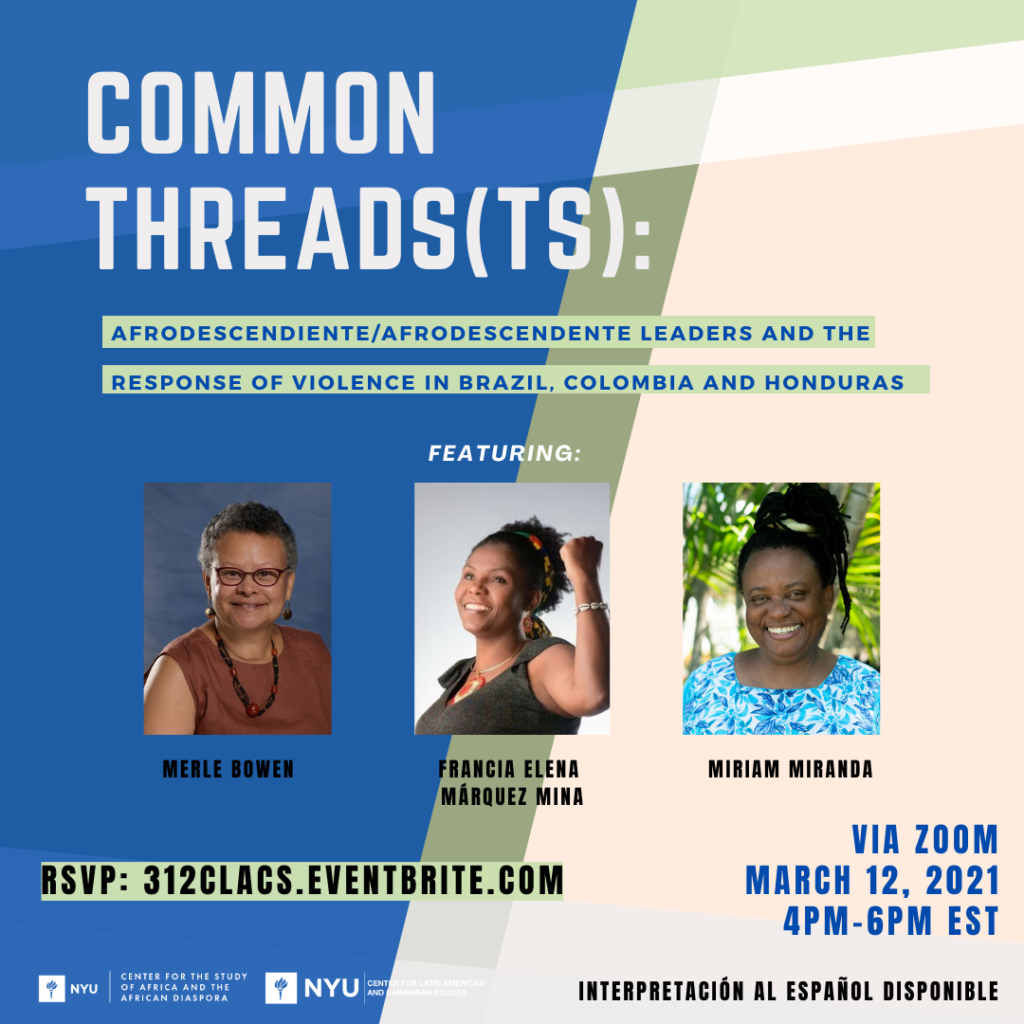
On March 12, 2021, CSAAD and CLACS co-hosted Diasporic Africa in Dialogue: Common Threads(ts): Afrodescendiente & Garifuna Leaders & Response of Violence, featuring Merle Bowen of the University of Illinois Urbana-Champaign, Francia Márquez, Leader of Afro communities and artisanal miners of northern Cauca, Colombia, and Miriam Miranda, OFRANEH, the Black Fraternal Organization of Honduras. They discussed black activists in Brazil, Colombia, and Honduras as victims of political violence as engineered by the state.
